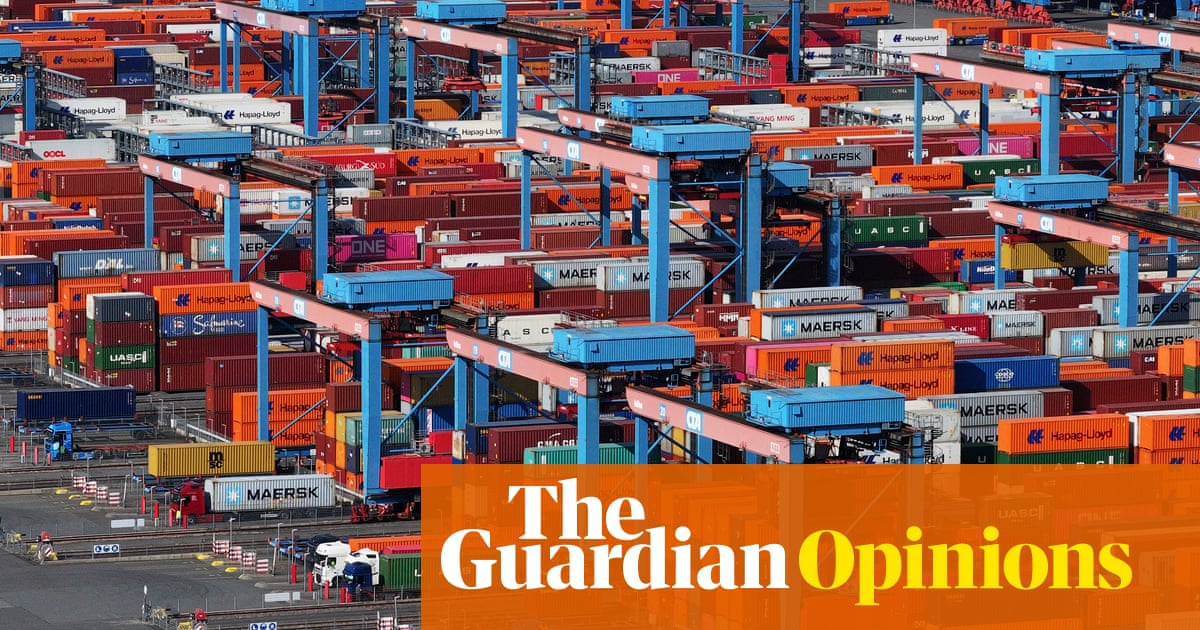This is whyAmerica firstdoesn’t have to mean Europe last.
Europeans have had plenty to mope about since Donald Trump entered the White House not quite three months ago. The US president has said that the EU was created to “screw the United States” and slapped punitive tariffs on European goods. He has cast doubt on the US commitment to defend Nato allies. He has cosied up to Vladimir Putin, insulted Volodymyr Zelenskyy and tried to settle Russia’s war in Ukraine on terms that would undermine European security. His vice-president has denigrated European democratic values, and his national security team has spewed venom in a Signal chat at“pathetic” Europe.
Yet the dark Trumpian clouds have a silver lining if we Europeans play our cards right. The advent of an illiberal, authoritarian nationalist regime in our closest ally may yet be a blessing in disguise if it helps European leaders tear down longstanding self-imposed obstacles to integration. Just think of the multiple opportunities to make Europe great again:
Finally complete the European capital markets union and banking union to unleash the cross-border investment power of some €3tn in European savings
Strike trade deals with countries and regions around the world, seeking a reliable partner committed to cutting tariffs rather than weaponising them
Jointly develop common defence capabilities to strengthen the European wing of Nato and be able to defend European interests if the US withdraws or steps aside
Provide Ukraine with greater military assistance, including medium-range missiles to fill the US gap and strengthen its position before any negotiation
Build international coalitions to defend liberal democracy, and uphold a rules-based order with like-minded partners from Canada to Japan, India and Australia
Expand economic partnerships with middle- and low-income countries in Asia, Africa and South America that consider the EU a more reliable partner than a protectionistUS or a predatory Russia, and a valuable hedge against excessive dependence onChina
Offer a special visa programme to attract US scientists and tech workers fleeing Trump’s university crackdown
Moreover, we can do all this without forfeiting a transatlantic economic partnership that remains the world’s biggest business relationship, withtwo-way investment north of $5tn in 2023. The EU remains the biggest single market in the world, with about 448 million consumers and an attractive business location for companies seeking political stability, the rule of law and a skilled workforce. That’s whyUS investment continues to pour into Francedespite high tax levels and regulation.
On trade, the EU has rightly held back from kneejerk retaliation for each haphazard announcement from the White House while making clear its willingness to use all its powers, including potentially against US tech giants, if Trump does not accept an equitable solution. The jury is still out on prospects of a negotiated settlement, but the EU must work in the medium term to make its economy less reliant on exports to the US and China.
Trump’s arbitrarily calculated tariffs and slashing of development and humanitarian assistance, as well as ending US support for democracy and human rights promotion around the world, have increased demand for European engagement – not just to plug the gaps left by the sudden cutoff of US aid but also to build sustained relationships. Sadly, some big European countries are alsoreducing their aid budgetsto pay for extra defence spending.
Apart from the jolt from Trump’s hostile actions, there’s another reason to believe the EU may finally achieve some of the critical advances that have proved elusive in the last decade: leadership. Germany is under new management, and its incoming chancellor, Friedrich Merz, has demonstrated he’swilling to throw outdecades of balanced-budget dogma to revive a stagnant economy, build a more robust defence and repair his country’s broken infrastructure.
The centre-right Merz, who will lead acentrist coalitionbetween his Christian Democrats and the Social Democrats, hasdeclared his ambitionto revive German leadership in the EU, in partnership with French president Emmanuel Macron and Polish prime minister Donald Tusk. He also wants to draw the UK into a closer security and defence embrace with the EU and work with Keir Starmer, both to build a stronger rampart against Putin’s aggression and in the hope of a longer-term economic rapprochement to overcome the damage of Brexit.
Historically, European integration tends to accelerate during crises and slacken when the pressure is off. The EU now faces twin existential challenges from a ruthless, revisionist Putin and a vandalistic, unpredictable Trump. Add to that a third, internal challenge from nationalist populism that could tear the union apart if the current generation of leaders doesn’t give Europe a fundamental new impulse.
If pro-Putin populists in Hungary and Slovakia block the use of EU institutions to achieve these objectives, then governments should create coalitions of willing states to take the necessary decisions, supported by the European Commission wherever possible.
European leaders must invest their political capital together decisively now to turn the Trump disaster into an opportunity for Europe.
Paul Taylor is a senior visiting fellow at the European Policy Centre
